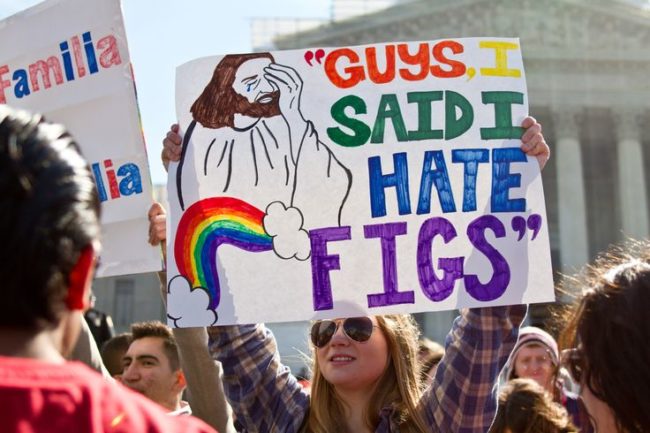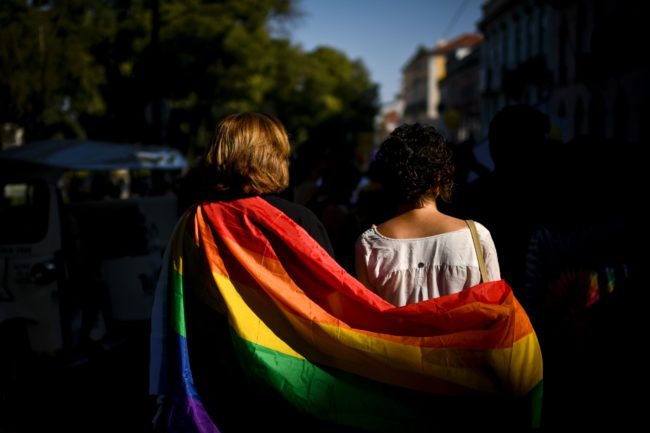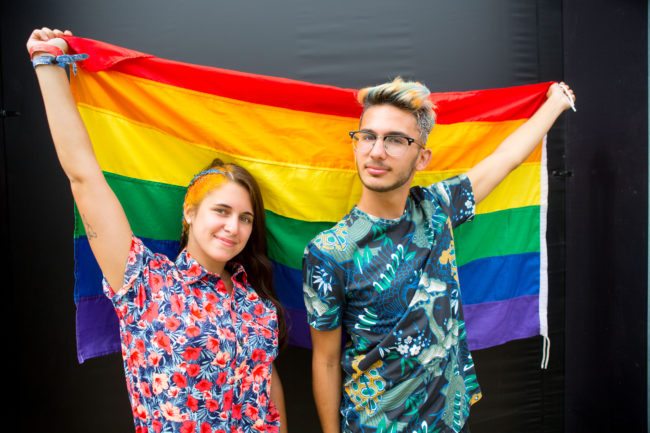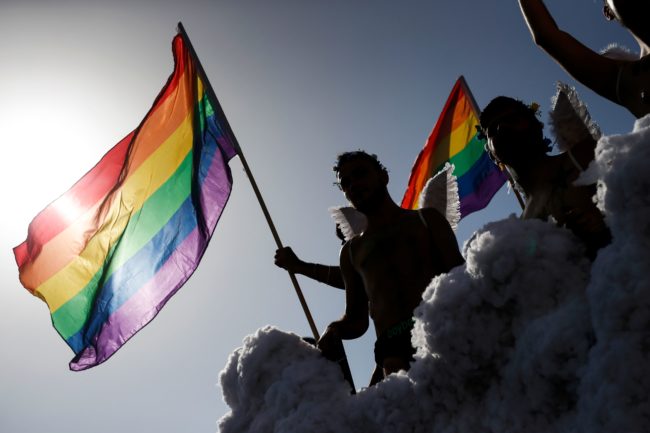How to support your child when they come out as LGBT+

Stock image. (Pexels)
Every queer person has a ‘coming out’ story and subsequently, so do their parents.
There is no right or wrong way to come out, however there are many ways parents and guardians can ease the process for their child.
Coming out can be an incredibly traumatic experience for many, especially with the horror stories of parents disowning their child because of their sexuality or gender dysphoria.
This fear of rejection can cause many queer people to remain quiet about their identity, increasing the chances of them struggling with their mental health.
A study last year showed that one in three Irish LGBT+ people tried to take their own life because of bullying, rejection and the pressure to hide their queerness.
Although society is becoming increasingly progressive towards LGBT+ individuals, homophobia is still a major problem in the UK and US.

(Getty)
Four in five LGBT+ people have experienced a hate crime, according to research carried out by the charity Galop.
It could be argued that a supportive home environment can lessen the pressures and fears LGBT+ individuals may face in the outside world.
PinkNews talked to Stonewall, Europe’s largest LGBT+ rights organisation, and My Kid Is Gay, a website dedicated to giving support to families with queer children, about how parents can create a more welcoming atmosphere for their child coming out.
The Initial Conversation
“Any queer or trans person would tell you that ‘coming out’ conversations don’t always go perfectly,” explained Grace Manger, Senior Managing Editor at My Kid Is Gay.

(PATRICIA DE MELO MOREIRA/AFP/Getty)
For queer individuals, many may recall that telling their parents was the hardest part of ‘coming out’, with the fear of “letting them down” being a growing concern throughout a person’s closeted life.
Many young people may have thought about coming out for a long time, putting extra pressure on them during this initial conversation.
Kara Bird, Information Manager at Stonewall, said: “understanding that this is a big moment and taking time to listen, rather than asking lots of questions, will help this process”.
Manger said: “Ideally, when a child comes out to their parent, that parent would react by holding tightly onto the love that they have for their child, telling their child that they love and accept them, and ask their child what kind of support they need moving forward”.
Bird and Manger’s comments suggest that by allowing your child to say their piece before asking questions can show them that you are a safe and understanding person to talk to about their sexuality or gender identity.

(Getty)
Manger added that: “I think it’s important for parents to know that even if they didn’t have the perfect response when their child first came out—maybe they were surprised, or confused, or scared and said something they maybe shouldn’t have—how they continue to react means much more in the long run.
It’s after that initial coming out conversation that the real work begins”.
Ongoing Support
After the initial ‘coming out’ conversation, it is arguably equally as important to continue showing your support and acceptance towards your child.
Manger said: “Every parent has the same opportunity to start their journey of learning how to support their LGBTQ kid”, suggesting that it isn’t something many parents may be good at straight away.
My Kid Is Gay’s CEO, Kristin Russo, suggests that parents should ask their children how they want to be supported.
“You offering that support is then in their head”, she explained.

(Getty)
There are thousands of stories of parents supporting their queer children online, and every child wants to see that support in different ways. This suggests that having an open dialogue is crucial in offering your child ongoing support.
Bird said: “taking active steps such as helping your child attend their first Pride can also be a great way to show your support”, with Stonewall holding frequent Youth Pride events across the UK.
With the recent release of films such as Love Simon, there are now an increasing number of ways to show your acceptance through activities to share your child’s ‘coming out’ journey with them.

(Love, Simon)
Help For Parents
In a YouGov poll for PinkNews, it was revealed that 88 percent of parents would support a gay child, compared to 67 percent for a transgendered child.
Although the majority of parents would be accepting, there are still a large amount who would struggle with the notion of having a queer child.
“I really urge parents who struggle accepting their kid’s identity to hold tight to the core love you have for your child,” Manger stated.
“The only difference is that now they have chosen to be even more honest with you about who they are.”
With some parents finding acceptance difficult due to political or religious reasons, Stonewall’s So You Think Your Child Is Gay guide explains how: “Certain churches, temples, synagogues or mosques might hold anti-gay views. But that doesn’t mean the whole of your religion is anti-gay.”

(Stonewall)
The guide also tackles the cliche view of it “being a phase”, what to do if your child is bullied and whether a parent is to blame for their offspring’s sexuality.
Charities such as Stonewall and Mermaids, who focus on supporting transgendered children, exist to help both LGBT+ children and their families, being a great source of advice for many parents.
Advice from parents
I wanted to interview some actual parents of a queer child about their journey of acceptance. So I asked mine…
What was your initial reaction to me coming out as gay?
Mum: “I was concerned because I was worried life was more difficult… you hear some awful stories. There’s still a lot of people who make comments and aren’t accepting so you do feel like you have to hide a piece of your life from people. I take those comments quite personally.”
What do you feel like now, three years later?
Dad: “I don’t have a gay son, I have a son. That’s how I look at it. It makes no difference. There is still a vein of society that is homophobic and I don’t think that will ever completely change and that’s the only thing I really worry about. But I’d much rather you be happy being yourself than being someone else.”
What was the turning point in coming to terms with it?
Mum: “I think a turning point was probably your relationship with your last ex. I think all parents want their child to be happy and be themselves.”
What advice would you give other parents?
Dad: “I would say that you spend your whole life bringing up your child but eventually your child will grow outside of your image, and whatever path they have they’re still your child and the person you love to bits. It’s been a good experience for me and it has heightened my awareness of all sort of things.”

(PAU BARRENA/AFP/Getty Images)
The importance of supportive parents cannot be underestimated. “The only thing that is going to make this world safer for LGBTQ people is having more LGBTQ people (and our allies!) stand up and fight for a safer world,” concludes Manger from My Kid Is Gay.

